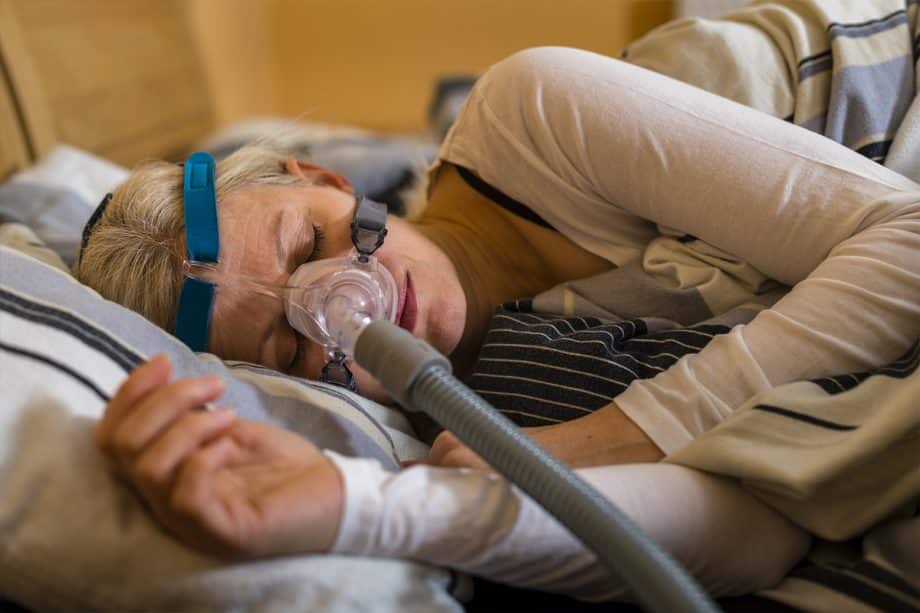Sleep apnea is one of the most common, yet underdiagnosed, health conditions in America. The majority of people who have sleep apnea are completely unaware. However, they are most likely feeling the symptoms. Sleep apnea interrupts your sleep cycles and prevents you from getting quality sleep at night, leading to a variety of health issues.
How is sleep apnea treated? Can sleep apnea be cured? Here’s what you need to know.
What is Sleep Apnea?
Sleep apnea is actually a breathing problem. When you lay down to sleep, especially when on your back, your tongue slides back toward your throat and your throat tissues relax, obstructing your airway. Partial obstruction causes snoring and complete obstruction causes you to stop breathing completely. You may stop breathing for seconds to minutes at a time until your body registers a lack of oxygen, causing you to wake up and resume breathing. This can happen multiple times throughout the night, even as much as 30 times in an hour. These interruptions to your natural sleep cycles prevent you from reaching the deep sleep that is necessary for adequate rest.
Signs and Symptoms of Sleep Apnea
You may have sleep apnea if you experience any of the following symptoms:
- Loud snoring
- Feeling tired
- Lacking energy
- Headaches
- Teeth grinding
- Irritability
- Difficulty with focus
- Falling asleep frequently during the day
Treating Sleep Apnea
The most common treatments for sleep apnea are designed to improve breathing.
- Oral appliance. An oral appliance can be used to hold your jaw in a forward position at night, preventing your tongue from sliding back to block your airway. It can be custom made to comfortably fit your mouth.
- CPAP machine. A CPAP (Continuous Positive Airway Pressure) machine consists of a mask you wear over your mouth and nose that delivers a constant flow of air to keep your airway open while you sleep.
Both of these methods are highly effective at treating the symptoms of sleep apnea. Many people prefer an oral appliance over a CPAP because it is more comfortable, compact, and silent.
Curing Sleep Apnea
There are some treatments that can get the source of your sleep apnea and actually cure it.
- Orthodontic treatment. For some patients, orthodontic treatment to align the bite and widen the upper jaw can prevent the tongue from sliding back to block your airway.
- Jaw surgery. Jaw surgery can also cure sleep apnea by changing the shape and position of the jaw so that your tongue does not slide back toward your throat.
- Throat surgery. Surgery to remove excess tissue from your throat can sometimes cure sleep apnea. There are also procedures that reshape the throat tissues to keep your airway open.
- Nasal surgery. For some people sleep apnea is caused by an inability to breathe through your nose. Surgery to open the nasal passages can cure sleep apnea in some cases.
Frequently Asked Questions About Sleep Apnea
Who can diagnose sleep apnea?
Sleep apnea can be diagnosed and treated by your dentist or a sleep specialist. Going to your dentist about your sleep apnea symptoms is often more affordable and just as effective as seeing a sleep specialist.
What other health problems can result from untreated sleep apnea?
Sleep apnea that goes untreated can result in heart disease, diabetes, and mental health disorders. It also increases your risk of car accidents due to distracted driving and falling asleep at the wheel.

